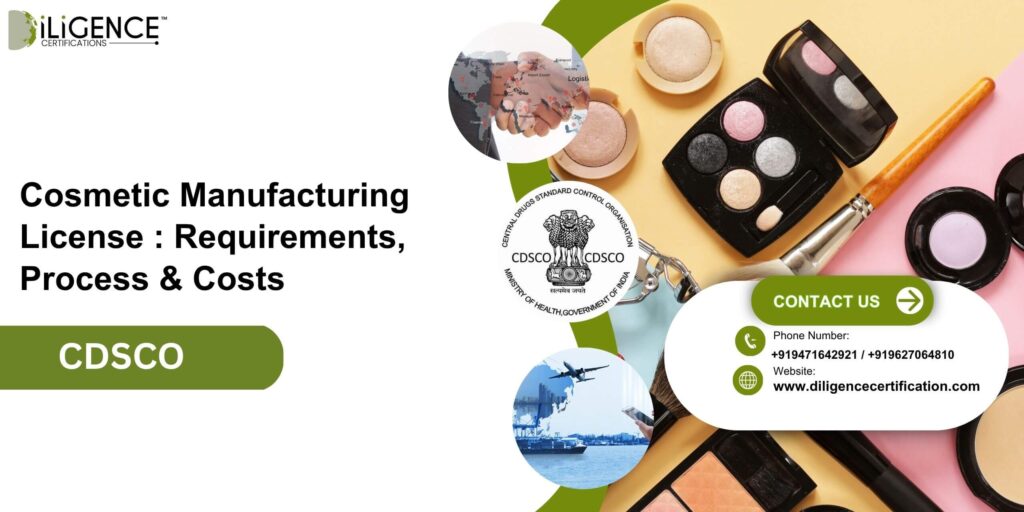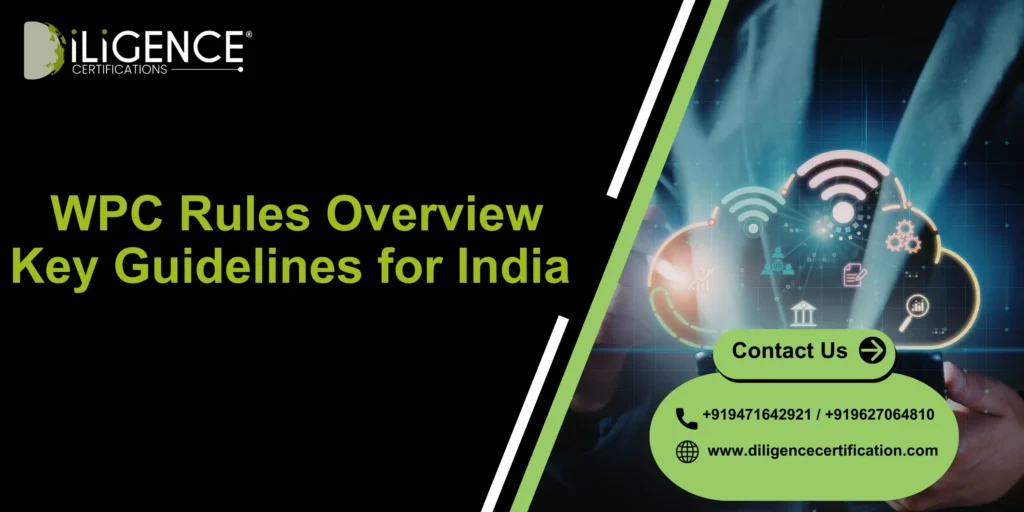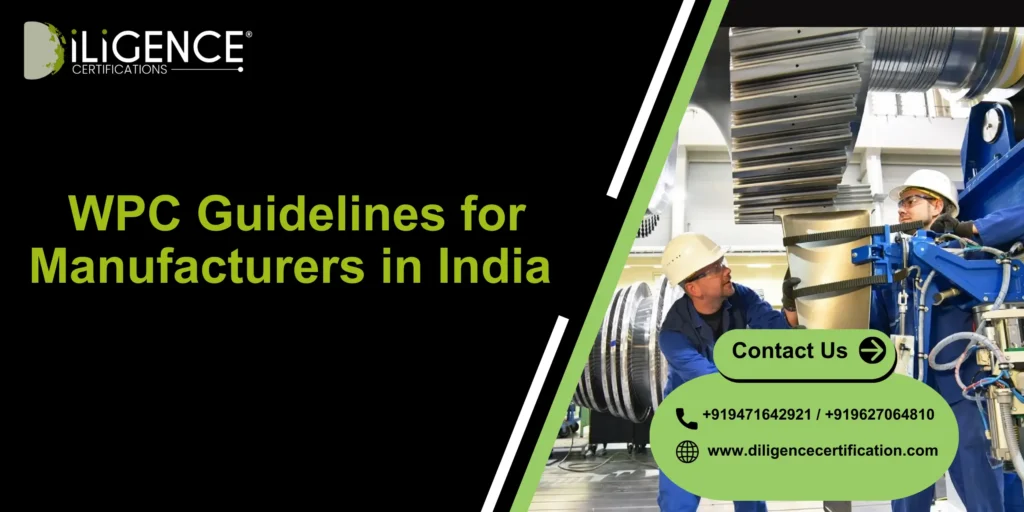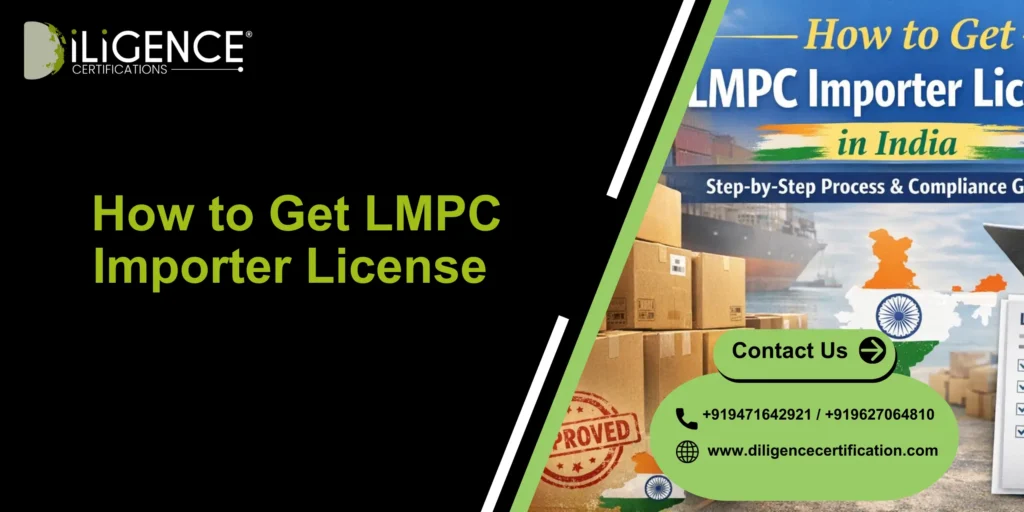- The Cosmetic Manufacturing License permits the legal manufacturing of cosmetics according to the Drugs & Cosmetics Act, 1940, issued by State Licensing Authorities.
- It is essential for all manufacturers to follow safety, labeling, and quality standards prior to the manufacture of cosmetics in India.
- Some required documents involve a Form COS-5, Power of Attorney, SOPs, site master file, particulars about the plant & machinery, and qualifications of technical staff.
- It is a step-wise procedure: submission of application, verification of documents, inspection of premises, and issue of Form COS-8 license.
- License will remain effective forever with retention fees are payable every 5 years, and utilization
Introduction
If you’re a Bangalore-based small business owner with a successful organic face serum or a larger business with plans to enter the cosmetics market, scaling production in India requires compliance with regulatory requirements. The Cosmetic Manufacturing License (Form COS-8) is not merely a piece of paper; it is legal permission to manufacture cosmetic products, a mark of assurance quality, and a means of access to traditional retail and e-commerce.
India’s rapidly growing $15 billion cosmetic industry does not depend entirely on packaging promises; therefore, regulations will help you strengthen consumer trust and create entry into markets. This document will summarize everything you need to know to apply for and maintain your Cosmetic Manufacturing License; once you have finished reading, your product idea will be a legally compliant and marketable item.
What Is Considered a Cosmetic Product ?
It is important to determine whether your product is in fact defined as a cosmetic before submitting an application for a manufacturing license. As stated in Section 3(aaa) of the Drugs and Cosmetics Act, 1940, a cosmetic includes any article intended to be applied to the human body or any part of it by rubbing, pouring, sprinkling or spraying for cleansing, beautifying, promoting attractiveness, or altering the appearance. This definition covers a very broad range of products:
Skin Care Products:
- Face creams, lotions, and moisturizers
- Cleansers, face washes, and exfoliators
- Face masks, and sheet masks
- Sunscreen, and other sun protection products
- Body lotions, and body butters
Hair Care Products:
- Shampoos, and conditioners
- Hair oils, and hair serums
- Hair dyes, hair colors, and hair bleaches
- Hair styling gels, hair styling waxes, and hair styling sprays
- Hair treatments, and hair repair masks
Color Cosmetics:
- Lipsticks, lip balms, and lip glosses
- Foundations, BB creams, and concealers
- Eye shadows, kajal, and eyeliners
- Nail polishes, and nail care products
- Blushes, and highlighters
Personal Care Products:
- Deodorants, and antiperspirants (medicated excluded)
- Perfumes, colognes, and fragranc
- Talcum powder, and other body powders
- Shaving creams, shaving gels, and aftershaves
- Bath soaps, and body washes
- Oral Care Products:
- Toothpaste, and tooth powders
- Mouthwash, and oral rinses
There are some interesting trends in the Indian beauty market. In the larger cities like Mumbai and Delhi, there is sudden growth of premium skincare products and Korean beauty products taking off. Meanwhile, rural markets are increasingly picking up basic personal care products like face creams, hair oils, and deodorants. For brands, this is good news to be growing across all price and product categories.
For instance, one business owner we spoke with began producing her own brand of herbal hair oil in Jaipur just three years ago and she is now running her facility making 12 SKUs including serums and face packs, all under her Cosmetic Manufacturing License. “Having a license provided us credibility,” she said. “Retailers trust us because by being licensed we are compliant.”
Understanding the Regulatory Authority
Unlike certain licenses that are distributed by central authorities, cosmetics manufacturing licenses in India are held by State Licensing Authorities (SLAs).
Who are the licensing authorities in states?
Each state has a Drug Control Department which is controlled by a Drugs Controller. The responsibility of the state level authority is:
Issuing Licenses: To issue manufacturing licenses for cosmetics that are manufactured in the respective state.
Inspecting Facilities: To conduct pre-licensing inspections and periodic inspections for manufacturers.
Monitoring Compliance: To ensure the manufacturer is complying with the regulations and maintaining quality.
License Renewals: To process retention fees and requests for renewal of licenses.
Enforcement: To issue actions for lack of compliance of regulations.
SLA vs. CLA: What is the difference?
State Licensing Authority (SLA), is responsible for issuing manufacturing licenses for facilities that manufacture cosmetics within that state.
Central Licensing Authority (CLA/CDSCO) is responsible for issuing import licenses for cosmetics imported from foreign countries.
If you are looking to manufacture cosmetics in India domestically, your point of contact will be your state licensing authority. Which, if you are going to set up a facility in Gujarat, would be the Gujarat Drug Control Department. If you were setting up a facility in Tamil Nadu, then it would be the Tamil
Cosmetic Categories Under Schedule M-II
The Drugs and Cosmetics Rules, 1945 have developed a more detailed classification of cosmetic products under Schedule M-II. Knowledge of the following categories helps to differentiate which products you can manufacture following guidance within your license.
Major Categories Include:
1. Powder, Cream, and Lotions
- Face powders (loose and pressed)
- Body powders and talcum powder
- Creams for the face and moisturizers
- Lotions for the body and hand creams
- Sunscreen creams and lotions
2. Hair Care
- Shampoos (liquid, cream, powder, gel)
- Conditioner and hair treatment
- Dyes, colors, and bleaching products
- Hair oils and serums and tonics
- Hair sprays and styling
3. Nail Products
- Nail polish and lacquers
- Nail polish removers
- Nail strengthener and treatments
- Cuticle cream and oils
4. Perfumes and Fragrances
- Alcoholic solutions for perfumes
- Perfume, eau de toilette, cologne
- Room frangrnacer and body deodorant
- Scented oils and roll on
5. Decorate Cosmetics
- Lipsticks and lip colors
- Eye work (shadow, liner, mascara)
- Face work (foundation, blush)
- Nail decorations and colored polish
6. Depilatory’s
- Hair removal cream
- Wax strips and waxing products
- Chemical depilatory
7. Oral Care Products
- Dental whitening
- Toothpaste and tooth powders
- Mouthwash and oral rinses
8. Soap Products
- Toilet soaps and bathing bars
- Liquid soaps or body wash
- Deodorant soap (non-medicated)
9. Aerosol Products
- Aerosol deodorant
- Hair spray
Regulations and Compliance Requirements
Facility Standards
Separate areas for manufacturing, storage, QC, and packaging; ventilation, lighting, hygiene, drinking water, waste disposal, and pest control requirements.
Technical Staff Requirements
Qualified personnel should be present during manufacturing:
Registered Pharmacist (B.Pharm/M.Pharm) or Diploma in Pharmacy (D.Pharm)
B.Sc. in Chemistry or related sciences. (In some states)
Responsibilities- Quality control, monitoring manufacturing, maintaining records and ensuring compliance.
Equipment
Appropriate equipment should exist for raw material storage, manufacturing, processing, QC testing, filling, packaging, and labeling.
Standard Operating Procedures
SOPs should address manufacturing, quality control testing, equipment cleaning, raw material testing, batch records, handling complaints, and recall products etc.
Labeling Standards
Labeling must include the product name; name of manufacturer; COS-8 license number; batch number; date manufactured and expiry; net quantity; list of ingredients; directions for use; warnings; and country of origin.
Additional Standards
Soap, hair oil, nail polish products, etc. must also follow the BIS
Documents Required for Cosmetic Manufacturing License
Application Form COS-5 – Provide all details related to the applicant, business, facility, products, and technical personnel.
Business Registration Documents – Documents demonstrating either company incorporation, partnership deed, (in the case of a partnership) sole proprietorship proof of registration, or registration of trusts/societies as appropriate.
Power of Attorney – Notarized proof of authorization if someone other than the Director/Proprietor is signing the application.
Technical Person Documentation – Educational qualifications, pharmacy council registration (as appropriate), employment agreement, and undertaking.
Site Master File – Factual facility address, total area of the facility, facility layout, utilities, environmental controls, and safety protocols.
Standard Operating Procedures (SOPs) – SOPs on manufacturing, QC, equipment operation, cleaning, record keeping, and personnel hygiene.
Plant & Machinery – List of equipment (for all processes), name of the equipment, specifications, make/model, purpose, place of installation.
Proof of Premises – Sale deed or lease, landlord NOC, tax receipts.
Site Plan & Site Layout – Layout showing departments, placement of equipment, flowchart of materials and personnel.
Draft Labels – Samples of labels containing all mandatory information.
Manufacturing Process Flowchart – Steps in the manufacturing process from receipt of raw materials to holding finished goods in storage with documentation of quality control checks.
Fee Challan – A copy of payment demonstrating payment of any SLA fees.
Other Documents – Covering letter, formulation of products, consent from competent persons, and environmental clearance (if appropriate).
Always verify state-specific requirements with your SLA to avoid delays or rejections.
Step-by-Step Procedure for Obtaining Your License
Step 1: Prepare Your Facility
Ensure your facility complies with all regulatory requirements: distinct areas for production, storage, QC, and packaging; appropriate equipment is in place; proper construction and cleanliness; qualified technical staff is hired; and waste disposal systems are in place.
Step 2: Complete Application Form COS-5
Accurately complete the form with information regarding your business; facility; cosmetic categories; technical staff; equipment; and commitment to compliance. Mistakes or errors may take time to rectify and/or process your application.
Step 3: Collect the required documents
Collect all documents as outlined in the SLA checklist, in physical form and in digital form
Step 4: Submit application to the SLA
Online: Create an account on the state portal, submit documents and fees, and receive an acknowledgement.
Step 5: Wait for notification of inspection
Once the SLA has reviewed your application, the SLA will schedule an inspection, generally taking 30-60 days to schedule, with general notification 7-15 day in advance.
Step 6: Prepare for SLA Inspection
Ensure the facility is clean, equipment is operational, SOPs are accessible, staff are adequately trained, and raw materials are adequately labeled. Confirm the labels on samples match the drafts provided, and records are clearly organized. Inspectors are watching for adequacy of construction, operation of equipment, adequacy of staff qualifications, QC compliance, storage and cleanliness, as well as documentation.
Step 7: Answer inspection questions
Inspectors may approve the inspection, request minor revisions to the drafted documents, or schedule a follow-up inspection. Be sure to comply in a timely manner.
Step 8: Receive your Cosmetic Manufacturing License (Form COS-8)
After approval from the SLA, you will receive your license which includes your license number, companies and individuals authorized to manufacture/cosmeticos at the address, approved cosmetic categories and products, individuals who completed (and or reviewed) the application, issue date, and if any conditions exist.
License Validity and Renewal Requirements
Here is a great benefit of the Cosmetic Manufacturing License: it is meant to last forever.
Everlasting Validity with Regular Retention Payments
Unlike other licenses which require a complete renewal application every few years, your Form COS-8 Cosmetic Manufacturing License is perpetual as long as the following are kept up:
Pay retention payments every five years
Follow all laws and regulations
Continue to manufacture for market
Keep your facility and documentation updated and current
Retention Payment Process:
Every five years after the license issue date, we must do the following:
- Submit retention payment to your State Licensing Authority
- Update the State any changes in business structure, mailing address, or technical staff
- Submit declaration of compliance
- Submit updates to documents if it has been significant changes
Retention payments will typically range from Rs. 2,000- Rs. 8,000, depending on the state, but the retention payment will always be much less than the original application fee.
When Can Your License Be Suspended or Cancelled?
Your license never changes status, but it can be suspended or revoked if:
- You don’t make retention payments in a timely manner
- Serious quality violations are discovered
- You manufacture goods in categories not approved without the appropriate
- SLA approval
- Your operation is found to be in serious non-compliance with SLAs
- You provided false information in your application
- You are found guilty of an offense under the Drugs and Cosmetics Act.
How to Maintain Compliance:
Here are a few ways to help you keep your license in good standing:
Scheduled or unannounced inspections: The SLA may perform a scheduled, as well as an unannounced inspection.
Quality: Ensure that you are producing a consistent quality of product.
Records: Maintain records of manufacturing and quality for a minimum of 3 years.
Staff: A qualified technical staff must be on site and readily available to respond to a production issue.
Alterations: You will need to Notify the SLA about changes to a product, facility and ownership.
Be Informed: You will want to follow the records and if the regulation changes for the cosmetics- as well as, the standards involved with the Bureau of Indian Standards..
Why Choose Diligence Certifications for Manufacturing License
Obtaining a cosmetic manufacturing license: The value of professional consulting It is indeed possible to independently obtain the cosmetic manufacturing license; however, it presents challenges for first-time manufacturers. This is where professional consultants can offer significant assistance.
For example, Priya from Pune spent four months preparing her facility and was ultimately rejected on the first application due to issues with her supporting documentation. After the initial process, she hired the Co consultants, who helped with creating SOPs in addition to assisting her with design of the facility, preparation for the inspectors, and the submission of application for her license, and she obtained her license within 90 days of starting the process.
Reasons to utilize professional consulting:
- Facility design. The consultant will consider the design layout, equipment, type of QC, and storage to ensure compliance with SLA requirements.
- Thorough documentation. Prepare all required SOPs, the Site Master File, process flow charts, and error-free application.
- SOP/implementation. Custom SOPs will be created for all areas of manufacturing, QC, sanitation, and staff training.
- Inspection preparation. Get staff ready for inspection, and have all documents available. Prepare for potential issues to arise.
- Provision of Technical Staff. Hired specimen staff will be training and kept in compliance with GMP.
- State Requirements. Still manage local procedures, inspections, and related fees.
- Operational services. Plan ahead for audits, amendments, license fees, and law compliance.
- Consultation with professional. You can participate fully in the review and address issues related to inspections, documentation, authority inquiries, appeals, or objection letters.
Conclusion
A Cosmetic Manufacturing License is not just a regulatory compliance issue; it is the foundation for developing a reputable, scalable, and trusted cosmetics business in India. With significant growth in the beauty and personal care market, now is the perfect time to launch manufacturing.
Key Takeaways:
1. It is illegal to manufacture cosmetics without a license, and there are sanctions for non-compliance.
2. The license is issued and managed in the state where the manufacturing takes place.
3. Manufacturing facilities must meet all specifications for infrastructure, equipment, and personnel.
4. Documentation and SOPs are essential to receive a License.
5. Licenses for Cosmetic Manufacturing are valid indefinitely, as long as there is periodic fee retention (every 3–5 years).
6. First impressions on inspections are important, so it is vital to prepare.
7. The Professional consultancy firm offers a high rate of success for approval and will speed up the process.
From Idea to Market: Whether starting an organic skincare line, budget haircare brand, or commercial cosmetics, the products must comply with regulations and the Drugs and Cosmetics Act. The license adds credibility to your cosmetic brand, as it indicates to consumers that their safety is thought of and quality is prioritized, specifically for informed buyers.
Frequently Asked Questions
What does it mean to have a Cosmetic Manufacturing License?
The Cosmetic Manufacturing License is a legal authorization granted by the state authorities in India that allows you to manufacture cosmetic products legally.
Who issued Cosmetic Manufacturing License ?
The Cosmetic Manufacturing License would be issued by the State Licensing Authority (SLA) depending on the location of your manufacturing unit or facility.
What products are classified as cosmetics in India?
Products that are classified as cosmetics in India are products that are applied, rubbed, poured, sprinkled or sprayed on a human body for cleaning, beautifying, increasing attractiveness or changing the appearance of the human body which includes products such as skin care, hair care, makeup products, perfumes and deodorants.
Can you manufacture cosmetics without a license?
No, manufacturing cosmetics without a license is illegal and could result in fines or penalties as well as regulatory enforcement.
How long is the license good for or valid for?
The license is valid indefinitely as long as you pay a periodic retention fee (every 3-5 years).
How long does it take to receive the license approved?
If you have prepared, approved licensure could take 2-3 months, although without professional support this could take longer due to time lagged.
Would a consultancy help with the license?
Yes, professional consultants help with managing the documentation, managing the facilities, standard operating protocols, and site inspections to boost the likelihood of approval.
What do you do after you receive the license?
Once you receive the license, you are able to manufacture cosmetics legally, you must maintain compliance with legal regulations, and you will have creditably with your consumers around safety and quality






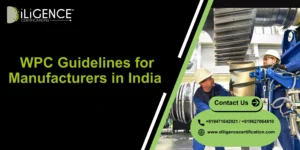
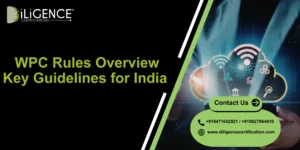
 BIS Certification
BIS Certification
 CDSCO
CDSCO
 CPCB
CPCB
 LMPC
LMPC
 WPC Approval
WPC Approval
 Global Approvals
Global Approvals
 TEC
TEC
 ARAI
ARAI
 BEE
BEE
 ISO Certification
ISO Certification
 DGCA Certification
DGCA Certification
 NOC For Steel
NOC For Steel



















 Business Registration
Business Registration















 Legal Services
Legal Services
 Trademark Registration
Trademark Registration
 Copyright Registration
Copyright Registration
 Patent Registration
Patent Registration
